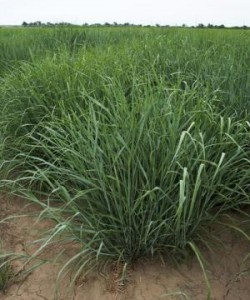ScienceDaily.com broke a story today about an article that will published in the May 22, 2009 issue of Science. The article focuses on what is more efficient – converting biomass to fuel or converting biomass to electricity? The study authors wrote in the online edition of the journal that the best bet is to convert the biomass to electricity rather than ethanol.

Credit: Photo by Stephen Ausmus, USDA/Agricultural Research Service
They calculate that, “compared to ethanol used for internal combustion engines, bioelectricity used for battery-powered vehicles would deliver an average of 80% more miles of transportation per acre of crops, while also providing double the greenhouse gas offsets to mitigate climate change.” Producing biomass for electricity would also provide another option to replace coal, highly criticized for its contribution of greenhouse gas emissions and other climate change gases.
Chris Field, co-author of the study and director of the Department of Global Ecology at Carnegie Institution, said nobody has asked nor answered the question which is relatively obvious. “The kinds of motivations that have driven people to think about developing ethanol as a vehicle fuel have been somewhat different from those that have been motivating people to think about battery electric vehicles, but the overlap is in the area of maximizing efficiency and minimizing adverse impacts on climate.”
Here is what they did: they performed a life-cycle analysis of both bioelectricity and ethanol technologies, taking into account not only the energy produced by each technology, but also the energy consumed in producing the vehicles and fuels.
Here is what they found: Bioelectricity wins in the transportation-miles-per-acre comparison, regardless of whether the energy was produced from corn or from switchgrass.
They also discovered: Bioelectricity and ethanol differ in their potential impact on climate change. Some approaches make the problem worse, some make the problem better.
Although the researchers acknowledge that bioelectricity is the winner, they caution that the issue facing society in choosing an energy strategy are complex. Bioelectricity may win in terms of transportation and climate but could lose in other categories like water consumption, air pollution and economic costs.
The study, “Greater Transportation Energy and GHG Offsets from Bioelectricity Than Ethanol,” is available on Science’s website.

